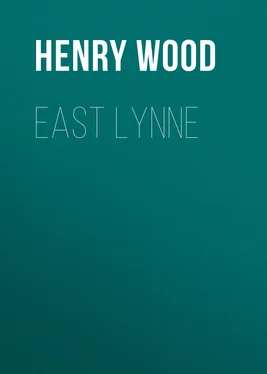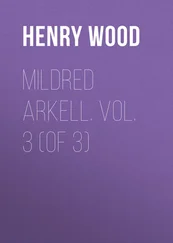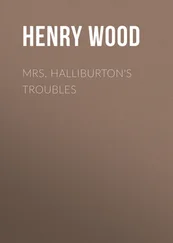Henry Wood - East Lynne
Здесь есть возможность читать онлайн «Henry Wood - East Lynne» — ознакомительный отрывок электронной книги совершенно бесплатно, а после прочтения отрывка купить полную версию. В некоторых случаях можно слушать аудио, скачать через торрент в формате fb2 и присутствует краткое содержание. Жанр: foreign_prose, literature_19, foreign_antique, на английском языке. Описание произведения, (предисловие) а так же отзывы посетителей доступны на портале библиотеки ЛибКат.
- Название:East Lynne
- Автор:
- Жанр:
- Год:неизвестен
- ISBN:нет данных
- Рейтинг книги:5 / 5. Голосов: 1
-
Избранное:Добавить в избранное
- Отзывы:
-
Ваша оценка:
- 100
- 1
- 2
- 3
- 4
- 5
East Lynne: краткое содержание, описание и аннотация
Предлагаем к чтению аннотацию, описание, краткое содержание или предисловие (зависит от того, что написал сам автор книги «East Lynne»). Если вы не нашли необходимую информацию о книге — напишите в комментариях, мы постараемся отыскать её.
East Lynne — читать онлайн ознакомительный отрывок
Ниже представлен текст книги, разбитый по страницам. Система сохранения места последней прочитанной страницы, позволяет с удобством читать онлайн бесплатно книгу «East Lynne», без необходимости каждый раз заново искать на чём Вы остановились. Поставьте закладку, и сможете в любой момент перейти на страницу, на которой закончили чтение.
Интервал:
Закладка:
“Thank you, papa,” she said, as she went in.
“You ought to have been in bed an hour ago,” angrily responded Mr. Justice Hare.
CHAPTER V
MR. CARLYLE’S OFFICE
In the centre of West Lynne stood two houses adjoining each other, one large, the other much smaller. The large one was the Carlyle residence, and the small one was devoted to the Carlyle offices. The name of Carlyle bore a lofty standing in the county; Carlyle and Davidson were known as first-class practitioners; no pettifogging lawyers were they. It was Carlyle & Davidson in the days gone by; now it was Archibald Carlyle. The old firm were brothers-in-law—the first Mrs. Carlyle having been Mr. Davidson’s sister. She had died and left one child. The second Mrs. Carlyle died when her son was born—Archibald; and his half-sister reared him, loved him and ruled him. She bore for him all the authority of a mother; the boy had known no other, and, when a little child he had called her Mamma Corny. Mamma Corny had done her duty by him, that was undoubted; but Mamma Corny had never relaxed her rule; with an iron hand she liked to rule him now, in great things as in small, just as she had done in the days of his babyhood. And Archibald generally submitted, for the force of habit is strong. She was a woman of strong sense, but, in some things, weak of judgment; and the ruling passions of her life were love of Archibald and love of saving money. Mr. Davidson had died earlier than Mr. Carlyle, and his fortune—he had never married—was left equally divided between Cornelia and Archibald. Archibald was no blood relation to him, but he loved the open-hearted boy better than his niece Cornelia. Of Mr. Carlyle’s property, a small portion only was bequeathed to his daughter, the rest to his son; and in this, perhaps there was justice, since the 20,000 pounds brought to Mr. Carlyle by his second wife had been chiefly instrumental in the accumulation of his large fortune.
Miss Carlyle, or, as she was called in town, Miss Corny, had never married; it was pretty certain she never would; people thought that her intense love of her young brother kept her single, for it was not likely that the daughter of the rich Mr. Carlyle had wanted for offers. Other maidens confess to soft and tender impressions. Not so Miss Carlyle. All who had approached her with the lovelorn tale, she sent quickly to the right-about.
Mr. Carlyle was seated in his own private room in his office the morning after his return from town. His confidential clerk and manager stood near him. It was Mr. Dill, a little, meek-looking man with a bald head. He was on the rolls, had been admitted years and years ago, but he had never set up for himself; perhaps he deemed the post of head manager in the office of Carlyle & Davidson, with its substantial salary, sufficient for his ambition; and manager he had been to them when the present Mr. Carlyle was in long petticoats. He was a single man, and occupied handsome apartments near.
Between the room of Mr. Carlyle and that of the clerks, was a small square space or hall, having ingress also from the house passage; another room opened from it, a narrow one, which was Mr. Dill’s own peculiar sanctum. Here he saw clients when Mr. Carlyle was out or engaged, and here he issued private orders. A little window, not larger than a pane of glass, looked out from the clerk’s office; they called it old Dill’s peep-hole and wished it anywhere else, for his spectacles might be discerned at it more frequently than was agreeable. The old gentleman had a desk, also, in their office, and there he frequently sat. He was sitting there, in state, this same morning, keeping a sharp lookout around him, when the door timidly opened, and the pretty face of Barbara Hare appeared at it, rosy with blushes.
“Can I see Mr. Carlyle?”
Mr. Dill rose from his seat and shook hands with her. She drew him into the passage and he closed the door. Perhaps he felt surprised, for it was not the custom for ladies, young and single, to come there after Mr. Carlyle.
“Presently, Miss Barbara. He is engaged just now. The justices are with him.”
“The justices!” uttered Barbara, in alarm; “and papa one? Whatever shall I do? He must not see me. I would not have him see me here for the world.”
An ominous sound of talking; the justices were evidently coming forth. Mr. Dill laid hold of Barbara, whisked her through the clerks’ room, not daring to take her the other way, lest he should encounter them, and shut her in his own. “What the plague brought papa here at this moment?” thought Barbara, whose face was crimson.
A few minutes and Mr. Dill opened the door again. “They are gone now, and the coast’s clear, Miss Barbara.”
“I don’t know what opinion you must form of me, Mr. Dill,” she whispered, “but I will tell you, in confidence, that I am here on some private business for mamma, who was not well enough to come herself. It is a little private matter that she does not wish papa to know of.”
“Child,” answered the manager, “a lawyer receives visits from many people; and it is not the place of those about him to ‘think.’”
He opened the door as he spoke, ushered her into the presence of Mr. Carlyle, and left her. The latter rose in astonishment.
“You must regard me as a client, and pardon my intrusion,” said Barbara, with a forced laugh, to hide her agitation. “I am here on the part of mamma—and I nearly met papa in your passage, which terrified me out of my senses. Mr. Dill shut me into his room.”
Mr. Carlyle motioned to Barbara to seat herself, then resumed his own seat, beside his table. Barbara could not help noticing how different his manners were in his office from his evening manners when he was “off duty.” Here he was the staid, calm man of business.
“I have a strange thing to tell you,” she began, in a whisper, “but—it is impossible that any one can hear us,” she broke off, with a look of dread. “It would be—it might be—death!”
“It is quite impossible,” calmly replied Mr. Carlyle. “The doors are double doors; did you notice that they were?”
Nevertheless, she left her chair and stood close to Mr. Carlyle, resting her hand upon the table. He rose, of course.
“Richard is here!”
“Richard!” repeated Mr. Carlyle. “At West Lynne!”
“He appeared at the house last night in disguise, and made signs to me from the grove of trees. You may imagine my alarm. He has been in London all this while, half starving, working—I feel ashamed to mention it to you—in a stable-yard. And, oh, Archibald! He says he is innocent.”
Mr. Carlyle made no reply to this. He probably had no faith in the assertion. “Sit down, Barbara,” he said drawing her chair closer.
Barbara sat down again, but her manner was hurried and nervous. “Is it quite sure that no stranger will be coming in? It would look so peculiar to see me here; but mamma was too unwell to come herself—or rather, she feared papa’s questioning, if he found out that she came.”
“Be at ease,” replied Mr. Carlyle; “this room is sacred from the intrusion of strangers. What of Richard?”
“He says that he was not in the cottage at the time the murder was committed; that the person who really did it was a man of the name of Thorn.”
“What Thorn?” asked Mr. Carlyle, suppressing all signs of incredulity.
“I don’t know; a friend of Afy’s, he said. Archibald, he swore to it in the most solemn manner; and I believe, as truly as that I am now repeating it to you, that he was speaking the truth. I want you to see Richard, if possible; he is coming to the same place to-night. If he can tell his own tale to you, perhaps you may find out a way by which his innocence may be made manifest. You are so clever, you can do anything.”
Читать дальшеИнтервал:
Закладка:
Похожие книги на «East Lynne»
Представляем Вашему вниманию похожие книги на «East Lynne» списком для выбора. Мы отобрали схожую по названию и смыслу литературу в надежде предоставить читателям больше вариантов отыскать новые, интересные, ещё непрочитанные произведения.
Обсуждение, отзывы о книге «East Lynne» и просто собственные мнения читателей. Оставьте ваши комментарии, напишите, что Вы думаете о произведении, его смысле или главных героях. Укажите что конкретно понравилось, а что нет, и почему Вы так считаете.












